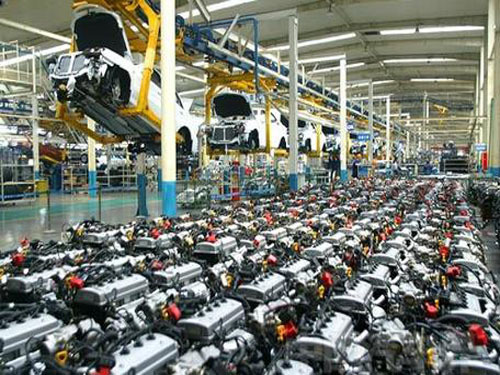Antitrust investigations gradually warmed up. On August 4, the anti-monopoly investigation team of the National Development and Reform Commission conducted a surprise investigation of the Mercedes-Benz Shanghai office and conducted an anti-monopoly investigation. On August 5, the media reported that Chrysler and Audi had received punishments for antitrust investigations. It indicates that the country’s anti-monopoly investigation in the automotive industry is gradually heating up. Companies surveyed, such as Jaguar Land Rover, Mercedes-Benz, Chrysler and Audi, responded positively and adjusted the prices of their products or accessories. Most of the main products of these enterprises are luxury cars or imported cars with higher prices, and they have been blamed for huge profits due to the high price difference between home and abroad and the low overall ratio. This round of surveys is mainly focused on the issue of imported vehicle prices. The impact on domestic luxury brand models and domestic B-class vehicles will not be significant. We do not believe that more luxury branded car companies will be subject to such antitrust investigations by the national regulatory authorities. 
Parts may be the next antitrust priority. Parts for after-sale use have been subject to control by vehicle manufacturers, and retained profit margins of about 30% before entering the distribution channels. This is the main reason for the high price of after-sales parts and components. The next step of the anti-monopoly of the national supervisory authorities may be to actively break the monopoly of the auto parts industry and reduce the cost of the distribution channels. The elimination of the monopoly of the spare parts industry will help reduce the cost of car use for consumers and promote the growth of car sales. The eradication of the monopoly of the parts and components industry may bring about the rise of other sales models, such as direct sales of online products, physical direct sales, and specialty stores, and the existing business model will be broken. Of course, it will also pose a great challenge to the quality management of parts and components circulation, and it will be necessary for the entire vehicle manufacturer and parts manufacturers to jointly solve the problem. Antitrust investigations in the parts and components industry will have a far-reaching impact on the automotive industry and deserve in-depth research and close attention.
After-sales maintenance and insurance may also become antitrust investigations. After-sales maintenance man-hour prices and parts prices are not transparent, and they are often guided by vehicle manufacturers. The overriding rule in vehicle insurance, and the status of consumers and insurers in the compensation process are unequal. All of these may be the object of antitrust investigations. The elimination of such monopoly will also reduce the cost of consumer vehicle use and promote the growth of automobile consumption.